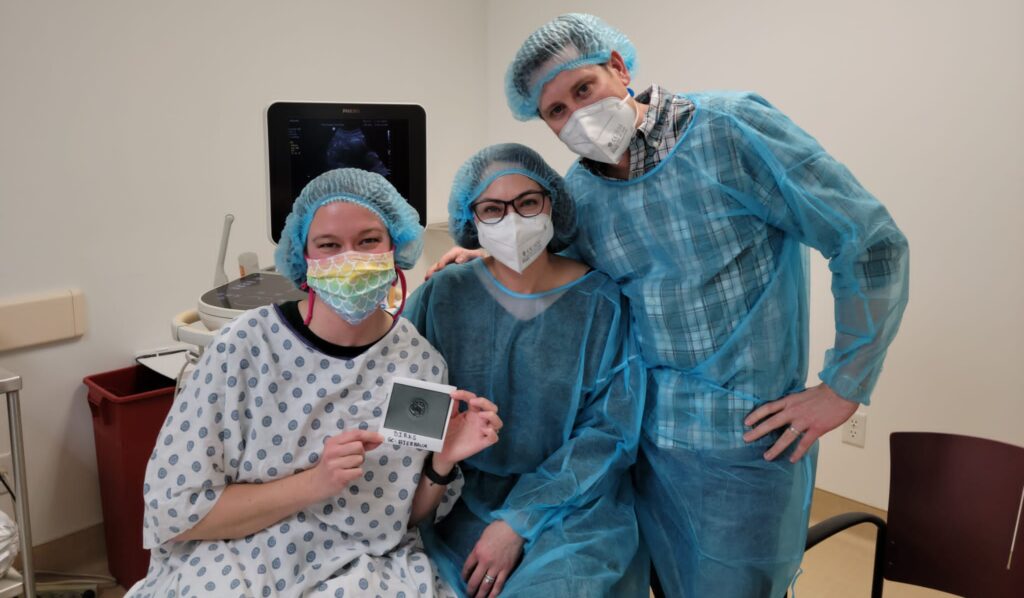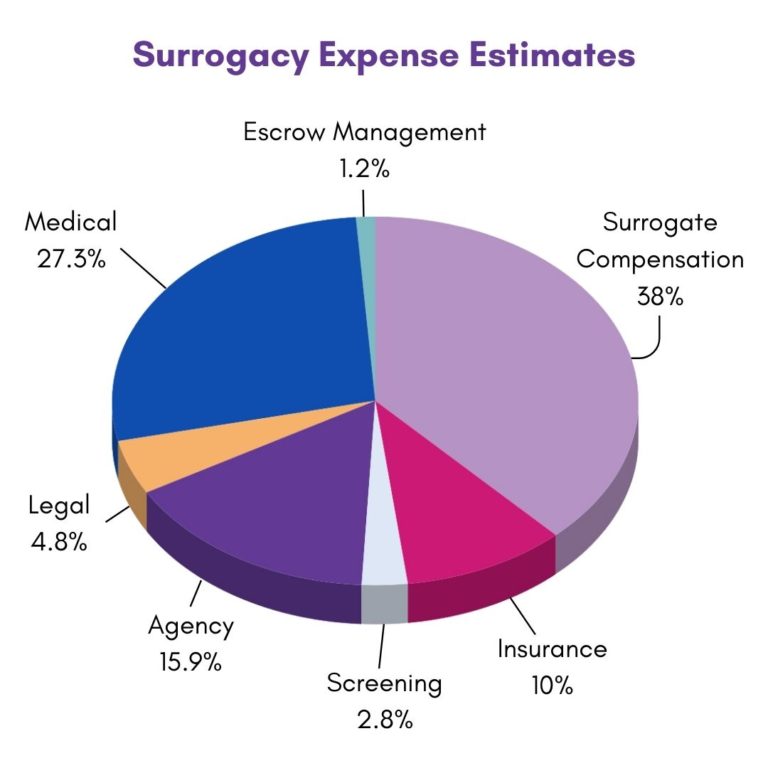Surrogacy Costs: A Guide for Intended Parents
Trying to figure out the cost of surrogacy? You’re not alone. Many intended parents start their research by asking, “How much does surrogacy cost?” Truthfully, it’s challenging to pin down an exact number due to the various factors involved. However, understanding the details that affect the overall expense can help you prepare for this exciting journey with confidence.

From medical procedures to legal fees, each step of the surrogacy process brings its own set of costs and considerations. We’ve broken down the following list by journey milestones.
At Heartland Surrogacy, the surrogate base compensation and variable fees, (such as the fee for embryo transfer, loss of organs, etc.) are set by the surrogate and agreed to in the Gestational Carrier Agreement. Aside from agency and surrogate fees, all expenses are made to third-party providers.
Our most important tip is to prepare for the uncertainty that comes with this journey. Unexpected expenses are typical in surrogacy, as every experience is unique and some costs are impossible to predict or estimate. Being prepared for the unknown will help you navigate the process with greater peace of mind.
Before Matching
Embryo creation is often the first step in a surrogacy journey. Many medical insurance policies do not cover these procedures fully (or at all), so intended parents often pay a significant amount out of pocket. Prices and procedures vary across fertility clinics, and some may offer discount packages for multiple services.

Expenses included in this stage are IVF cycles, medication, and preimplantation genetic screening. Some intended parents (IPs) may also require egg, sperm, and/or embryo donation, which involve additional expenses. You can begin services with our agency once your embryos are created. The first agency fee installment is due at this time.
Matching
After a successful match meeting, your surrogate (and their partner, if applicable) will need to complete psychological and medical evaluations. The appointments will include a combination of psychological interviews, psychological testing, blood work, and physical exams as determined by your fertility clinic. Many clinics also require you to complete a joint psychological consultation.
In preparation for these appointments, you will need to secure an escrow service and fund the account to cover the expenses of this stage. Beyond medical fees, you can expect expenses and compensation related to your surrogate undergoing screening.

Here is a summary of what you can expect after matching:
-
Psychological evaluation for your surrogate (and partner if application)
-
Joint psychological consultation
-
Surrogate medical evaluation
-
Surrogate travel expenses, lost wages, childcare costs
-
Surrogate medical evaluation compensation
-
Escrow management fee
-
Matching agency fee installment
Contracts
Once your surrogate is medically cleared, you will need to retain attorneys for your journey. Typically, the intended parent(s)’ attorney drafts the surrogate contract for a flat fee and the surrogate’s attorney reviews it at an hourly rate. A good match typically results in less negotiating, which helps minimize legal expenses.
After signing the contract, you will need to fund your escrow account with your surrogate’s base compensation plus an additional buffer to cover variable and unexpected expenses (typically 20%). As your journey progresses, our team will guide you in maintaining an adequate balance and preparing for each stage. At this time, you will also pay the contracts installment of our agency fee.
Transfer
Your surrogate’s transfer fee and related expenses (travel, lost wages, childcare) will be drawn from the escrow account during the transfer stage. You can expect to pay for the medical care directly to your clinic. Depending on your surrogate’s location, monitoring appointments may be at a different clinic.
You can expect the following costs during the transfer stage:
-
Surrogate compensation for medication start, transfer, and bed rest
-
Surrogate travel expenses, lost wages, childcare costs
-
Embryo transfer clinic fees
-
Monitoring clinic fees
-
Life insurance premiums
-
Health insurance premiums and/or out-of-pocket costs as applicable for your journey
-
Surrogate monthly allowance
-
Transfer agency fee installment

Pregnancy
During pregnancy, expenses will be drawn from the escrow account as they occur. Your surrogate’s base compensation will also be disbursed in installments as dictated by your contract. Near the end of the pregnancy, the attorneys will start the paperwork to establish parentage. The invoice for this work will be paid through the escrow account.
Costs to expect during this stage:
-
Parentage documents
-
Second-parent adoption (if applicable)
-
Medical billing management
-
Pregnancy clothes allowance
-
Life insurance premiums
-
Health insurance premiums and/or out-of-pocket costs as applicable for your journey
-
Surrogate monthly allowance
-
Surrogate base compensation
Birth and Postpartum
Our team will help estimate delivery and surrogate postpartum expenses ahead of time. With your escrow management company, we will monitor your account balance and let you know when additional funds are needed.

Your escrow account must remain open until all surrogacy-related expenses and compensation have been paid. Our agency will work with your surrogate (and medical billing management company, if applicable) to ensure that all bills are paid for before the account is closed. All newborn medical care is the responsibility of the parents and is billed separately.
These are some of the expected expenses after delivery:
-
Surrogate lost wages, childcare, bed rest, as applicable
-
Surrogate milk pumping compensation and expenses, if applicable
-
Medical bills related to the delivery and your surrogate’s postpartum care
Visual Breakdown of Surrogacy Costs
The pie chart below provides a simplified breakdown of the expenses you can anticipate in this process:

Planning Ahead
We know that delving into financial matters is not the most exciting part of preparing to be a parent! When it comes to surrogacy, however, establishing a comprehensive financial is crucial. It’s not merely about allocating funds; it’s about forecasting expenses, understanding potential financial risks, and devising contingency measures. By proactively planning ahead, you can mitigate setbacks and manage the uncertainty involved in surrogacy expenses. We want you to be able to navigate the process with confidence and ease!
Whether you’re ready to start your journey or want to discuss the details further, we’re here for you!
